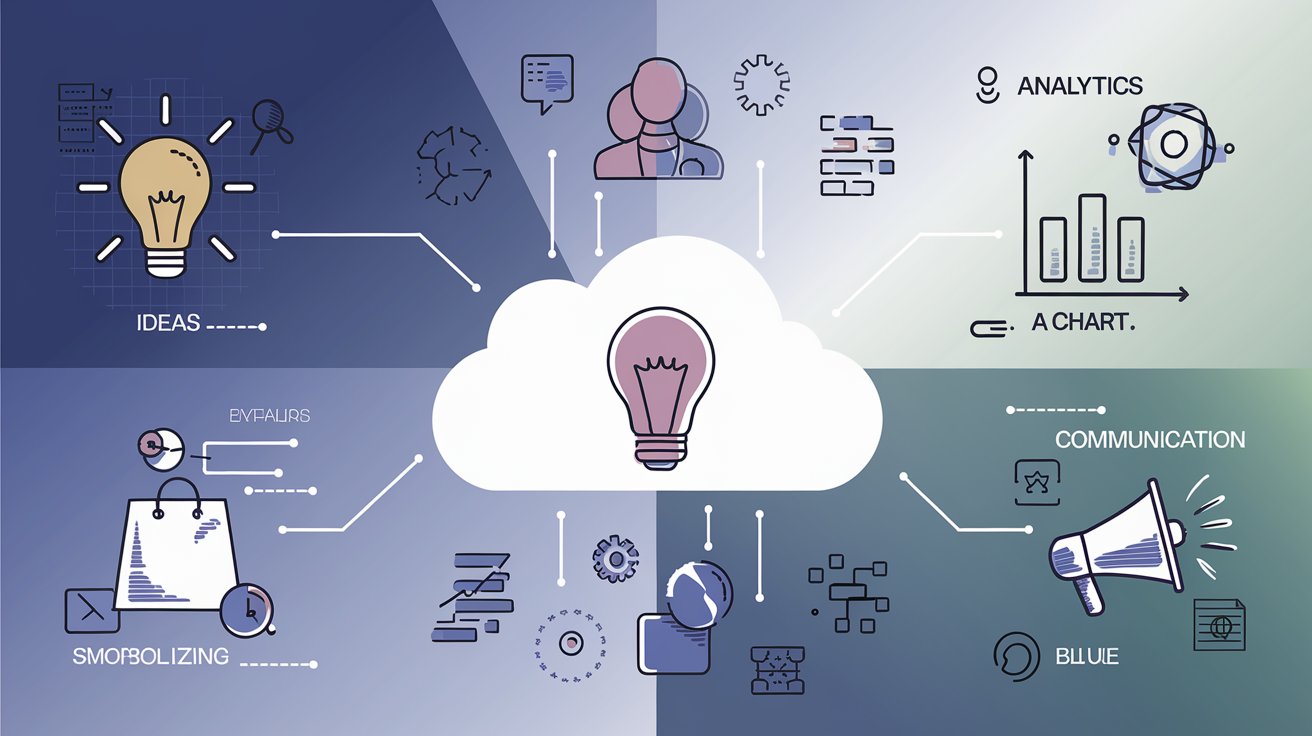In today’s hyper-connected digital landscape, delivering seamless customer experiences across multiple channels has become more critical than ever. Marketing Cloud Software has emerged as the backbone of successful omnichannel campaigns, enabling businesses to orchestrate, automate, and optimize their marketing efforts across diverse touchpoints.
Understanding Marketing Cloud Software
Marketing Cloud Software is a comprehensive suite of digital marketing tools that enables organizations to plan, execute, and measure marketing campaigns across various channels from a single platform. This integrated approach ensures consistency in messaging and brand experience while providing valuable insights into customer behavior and campaign performance.
Key Benefits of Marketing Cloud Solutions
| Benefit | Description | Impact |
|---|---|---|
| Unified Customer View | 360-degree customer profiles combining data from all touchpoints | Better targeting and personalization |
| Automated Workflows | Streamlined campaign execution across channels | Improved efficiency and reduced manual effort |
| Real-time Analytics | Instant access to performance metrics and insights | Data-driven decision making |
| Personalization | Dynamic content adaptation based on customer behavior | Enhanced customer engagement |
| Cross-channel Consistency | Unified messaging across all platforms | Stronger brand presence |
Essential Features for Omnichannel Success
1. Customer Data Platform (CDP)
At the heart of any effective marketing cloud solution lies a robust CDP that collects, unifies, and analyzes customer data from multiple sources. This consolidated view enables marketers to create highly targeted and personalized campaigns based on accurate customer insights.
2. Campaign Automation
Advanced automation capabilities allow marketers to design and execute complex, multi-step campaigns across various channels. This includes email marketing, social media, mobile messaging, and web personalization, all orchestrated from a single platform.
3. AI-Powered Analytics
Modern marketing cloud platforms leverage artificial intelligence to provide predictive analytics, customer segmentation, and automated optimization of campaign performance. This enables marketers to make data-driven decisions and improve ROI continuously.
Implementation Challenges and Solutions
Common Challenges:
- Data integration complexity
- Technical skill requirements
- Change management
- Budget constraints
Solutions:
- Phased implementation approach
- Comprehensive team training
- Clear communication strategy
- ROI-focused deployment plan
ROI and Business Impact
Organizations implementing marketing cloud software for omnichannel campaigns typically experience:
- 25-30% increase in campaign effectiveness
- 15-20% reduction in marketing operational costs
- 40% improvement in customer engagement rates
- 35% higher customer retention rates
Future Trends
The evolution of marketing cloud software continues to accelerate, with several emerging trends shaping its future:
- Enhanced AI Integration
- Predictive analytics
- Automated content generation
- Real-time optimization
- Privacy-First Approach
- Enhanced data protection features
- Compliance automation
- Cookie-less tracking alternatives
- Advanced Personalization
- Individual-level customization
- Real-time content adaptation
- Cross-channel experience optimization
Best Practices for Implementation
- Start with Strategy
- Define clear objectives
- Identify key performance indicators
- Map customer journeys
- Data Management
- Establish data governance protocols
- Implement data quality measures
- Regular data audits
- Team Enablement
- Comprehensive training programs
- Clear process documentation
- Regular skill updates
Measuring Success
Success in omnichannel marketing requires tracking various metrics across different channels:
Key Performance Indicators:
- Customer Lifetime Value (CLV)
- Campaign ROI
- Channel Attribution
- Customer Engagement Rates
- Conversion Rates
Conclusion
Marketing Cloud Software has become indispensable for organizations aiming to deliver effective omnichannel campaigns. Its ability to unify customer data, automate complex workflows, and provide actionable insights makes it a crucial tool for modern marketers. As technology continues to evolve and customer expectations rise, the role of marketing cloud solutions in enabling seamless, personalized customer experiences will only grow in importance.
The success of omnichannel marketing campaigns depends heavily on choosing the right marketing cloud platform and implementing it effectively. Organizations that embrace these solutions while following best practices for implementation and optimization are better positioned to succeed in today’s competitive digital landscape. As we look to the future, the continued evolution of marketing cloud software will bring even more sophisticated capabilities, enabling marketers to deliver ever more personalized and effective customer experiences across all channels.

